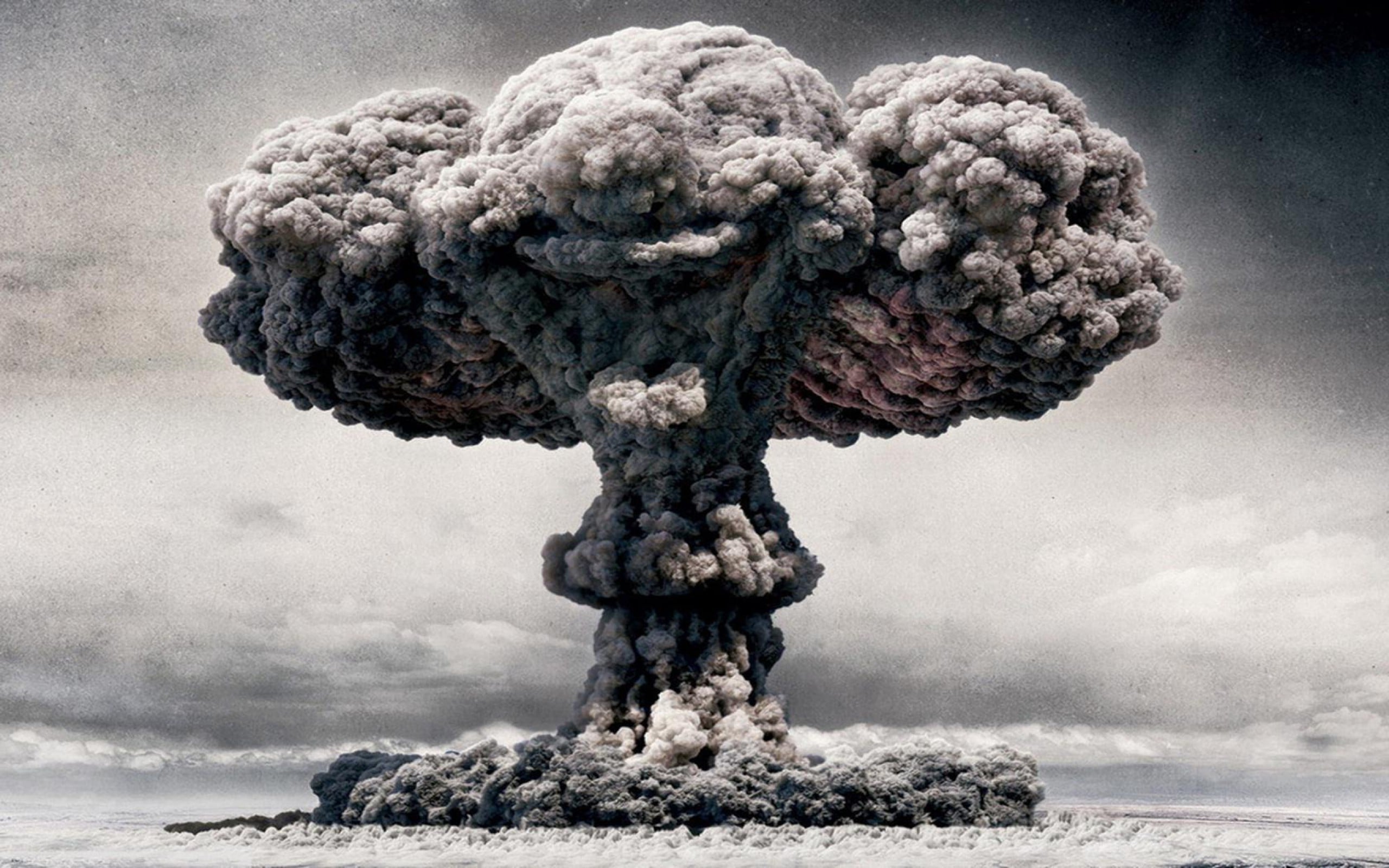Machineries of Joy: Wrestling with the technological sublime
This one is for my friends Rachel Shabi and Waleed Hazbun, who might recognise something of the pathos of our common paternal utopias in it…
11 February 2015
“Hyperbole is the main stock in trade of publicists, boosters and even anti-boosters in some artists. Yet redemptive hyperbole and apocalyptic hyperbole amount to the same thing. We should be alert to the way to booster discourse circles back into apocalyptic foreboding and vice versa. The prosaic and often boring reality of the grimy present moment is always excused either by imagining a better future or an even worse one.” Allan Sekula, interviewed by Edward Dimendberg
About the sea as the sublime, as the metaphysical fantasy of the romantics, the great Allan Sekula writes, “when proto-romanticism is … confronted with [the sea’s] uncommodifiable excess [or what cannot be reduced to property], it transforms it into the sublime, taking it initially as proof of divinity; only later is the category naturalized and psychologized.” But what about the technological sublime?

Yuri Gagarin
I am still grappling with this seduction by technology. On the one hand, I resist the seduction just as strongly as I feel it because of some Oedipal apprehension about the way in which my father and his generation loved technology (about which more below). On the other hand, I resist it because of the primacy of the American technological sublime as the species of the sentiment par excellence.
Part of this is what I can attribute to my own puppy-like enthusiasm for things whose machine workings, their engineering, the sophistication and usefulness of their operation, still inspire in me awe and wonder: something elegant and effective and ingenious; something that bespeaks of inventive thinking and of the absorption of histories of thinking and invention into an object which simply works [all of this of course clashes titanically with my utter revulsion at purity; authenticity; homogeneity; sterility; theoretical vigour/rigour/sparseness]. I was earlier reading an essay by John Law on the technological advances in medieval Portuguese navigation by astronomy, much of which must have been absorbed from the Arabs and then transformed into workable knowledge by sailors and masters who were not astronomers or scientists. The story he tells is problematic in that it also bears the markings of the seduction by the workings of science to the point that sometimes the politics of the thing ends up getting forgotten or relegated to the margins of the essay (Law is a Latourian). But despite this shortcoming, the story Law tells of how these then-new forms of navigation were naturalised and absorbed by the seafarers and sailors is perhaps the most absorbing part of an essay which in the whole feels a bit unpersuasive and not entirely worked-through (I suspect it is part of a larger project, of which I only see a bit; as I write this without the benefit of a search engine at hand).
But there is another part of my relationship with technology which I am trying to understand or explain (or justify?) as something different than the US version which is about romanticising an era of capitalism in which robber barons made grand infrastructures on which the foundations of the US liberal empire were built. This American technological sublime was another kind of thinking about “frontiers,” but now the frontier was no longer the territories of the indigenous peoples being dispossessed, but frontiers of science, innovation and technology (most US people think that most technology was invented in the US; and that generally, efficiency, good design, good engineering etc can best be found in the US – which of course if you are living in Europe after having lived in the US you realise what an uproarious joke it is). This discourse of US scientific “frontier” often celebrates vaccines or the CDC or the Hoover Dam or the Hubble Space Telescope (all admittedly things I am besotted with) or whatever else – but often ignores other “innovations” and “inventions” in this wasteland of scientific frontier: like nuclear weapons, or remote control assassination machines, or fracking, or – indeed viruses that can kill pandemically and genetically modified foods that can exterminate entire ranks of species and ecologies. This is not my technological sublime (though I don’t deny I am fascinated by the inner workings of these things too).
So, let me try and excavate the lineage of my own personal seduction by technology. Inevitably this will have to go through the early Soviet love of the modern (from electrification by way of Stalin all the way to Yuri Gagarin and Valentina Treshkova); but also the whole history of modernist art and literature in Europe which has by-and-large a left lineage or connection as well; and then through the post-colonial states’ fantasies of political economies independent from colonial masters, or at least on course to development. So some of it is aesthetic; some of it political; and some of it comes from that primordial soup of memory and affect and affection into which goes your early childhood stories and readings and loves and what you learned and what you drew and wrote and studied and all that.
First the Soviets. It is now a cliché (though of course all too horrifyingly true) that Stalin killed millions so he can bring electricity to those vast territories. But certainly electrification and rapid industrialisation through the destruction of the peasantry and a form of state accumulation by dispossession certainly led to the USSR fast becoming a power with which Europe and the US had to reckon. There is a great deal in there about the fascination of Lenin with Fordism, and in early Soviet Union, the state managers wanted to overlay some version of Taylor’s “scientific management” unto the processes of production. So much of this of course had to do with the ways in which the Soviet version of Marxism (starting with Lenin himself) had themselves this odd affective relationship with industry and technology, a proto-technological sublime of a sort which then became a full-blown thing in the early 1920s.
Gramsci articulates something of this Marxist fascination with the rationalising force of Fordism and scientific management. For him, the American version of Fordism is worthy of study because it is distinguished from the European version. European capitalism is saddled with “a heap of passive sedimentations produced by the phenomenon of the saturation and fossilisation of civil service personnel and intellectuals, of clergy and landowners, piratical commerce and the professional (and later conscript, but for the officers always professional) army.” Gramsci writes that by contrast
In America rationalisation has determined the need to elaborate a new type of man suited to the new type of work and productive process. This elaboration is still only in its initial phase and therefore (apparently) still idyllic. It is still at the stage of psycho-physical adaptation to the new industrial structure, aimed for through high wages.
This making of a “new man” seems to be a fantasy also echoed in Fanon. If Gramsci’s version the capitalist new man of the US is created through the rationalisation of Fordism (which can only recall Charlie Chaplin’s version), for Fanon, the violence that matches colonial savagery with anticolonial apocalypse is what makes a “new man.”
What is striking is that Gramsci sketches his fascination with Fordism through a contrast with Neapolitan economies; and Lenin and Stalin’s fascination with this industrialising, rationalising modernism also came from their understanding of their living in a kind of “backward” agricultural environment. As does both the Third Worldist Marxist and nationalist fascination with industry. Sudipta Karviraj’s fascinating reading of Indian Marxism (in “Marx in Translation”) also echoes this problem of Marxists reconciling their theory with an agricultural (and therefore pre-industrial and pre-proletarian environment) clearly shows the problems associated with having to map indigenous social formations to a “universal” Marxist schema – and thus the universalisation of the category of “feudalism,” where local formations could only be seen as a replica of the European feudal regime of production, as backwards formations to be discarded on the inevitable speeding along towards the salvation of socialism.
This universalising schema also looked to Soviet Union for that revolutionary leap over the (un)necessary stage of capitalism directly into socialism. And the leap could only happen through technology. Thus, not just the early Soviets, but also the Third Worldist Marxists saw in the emergence of industry, of steelworks, of transport infrastructure, of oil derricks and coal mines routes to discarding this “backward” past and leaping into a future which guarantees higher incomes, and better hygiene, and less superstition, and perhaps by necessity, fewer conservative forces associated with rural “feudal” forces (as well as those peasants described by Marx as potatoes in a sack) or urban petty bourgeoisie. Speeding along the Marxist stages of development from one station to the next ended up becoming a sine qua non of belief in progress towards socialism. And “progress” itself became associated with all those things that Europeans seemed to have on their way towards an inevitable socialism: hygiene, clean streets, public transport, industry, infrastructure, public health, good schooling, engineers and doctors and architects (but of the functional and practical kind not the fancy type that did frivolous buildings).
And some of my father’s generation’s fascination with technology, science and progress also came not from this epistemic diagnosis or ontological or historic desire, but also from very practical sets of relations and transformations: all those sons and daughters of the petty bourgeoisie rebelling Oedpically against their fathers and going off to Berlin and Paris and London and New York (or more likely technical colleges and polytechnics in Kansas and Sheffield and Leeds and Texas) to be educated in the ways of making the modern. This was a serious venture, as it is obvious from chauvinistic higher education universities banning “the enemy” youth from acquiring the mystical knowledge now embedded in science.
What was learned, at home and abroad, was not just the necessary skills to operate modern technologies (though interestingly, not modern economies, except in so far as it was the scientific statistical methods and the like). What was also learnt in that era was also an affection for, an awe of, the human majesty that could transform the world around us in the way it was doing, a kind of humanism familiar to the Marxists of early to mid-20th century. A fascination with the human ability to invent, to carve out the new, the massive, the epic history. A rejection of god, and gods, and fate, and religion. This was the new man of Gramsci and Fordism and Fanon. This Marxist form of humanism left its traces and residues (and its repressed opposite) in the modernist arts, architecture and literature produced by so many communist and socialist and leftist artists of the early to mid-twentieth century, of course in Europe, but especially elsewhere in the world. These modernists were the people who remade our poetry and our arts and our literature. They stopped using the old forms and the old vocabularies and spoke of shovels and of machinery and of the unspoken and unspeakable. They wrote novels that in their jagged experimentalism was meant to echo the jagged technological rebirth we were supposed to go through.
But there were other things at work as well:
The nationalists well remembered how their former colonial masters brought with them industries that exploited them –the coal and gold and silver and copper and diamond mines into which they descended, the rubber plantations which were essentially factories in jungles, the roads and railroads (and sometimes ships) that carried away the fruits of their labour. I serendipitously stumbled upon a reference to Manu Goswami’s wonderful book in which recounted this colonial infrastructure was called “memorials of British rule” by a British chief consulting engineer. And having, owning, mastering, these same industries and infrastructures ended up becoming a way you measured your independence against the domination of your former masters. So, if you were an independent state, you went to Soviet Union to give you the steelworks that would allow you to make your own steel for your own railroads. And the Soviets could also provide electricity plants and the massive dams that could produce that electricity. And coalworks. And railroads. And oil refineries. As could the French or the Germans. And later the Japanese and Koreans.
But at work was another thing too, which worked in those hybrid economies of the non-aligned countries: import-substitution industrialisation. Which was seen as another route to progress. There, we made our own things instead of importing them, and that allowed us to industrialise. I remember my father’s disdain though for our auto assembly plants. He would spit out his revulsion, “but they control the technology; we only assemble the parts they have made.” And he was not wrong. So, controlling the technology, knowing it, mastering it was another way in which we could catch up with them, maybe even surpass them, the way the fantasy had the Soviets surpassing “the West.” And in some regards, the fantasy was not all wrong either: after all Gagarin was the first man in space; and it took so many decades after Treshkova had gone to space that the US would send its first woman there.
This comfortable convergence between what was essentially a liberal-nationalist plan for industrialisation and the epistemic diagnosis of committed Marxists usually happened along the vector of technology. So technology became our true north, the thing we sought, needed, desired. I still remember the days of my engineering undergraduate degree not as just this degree I had to get to “help my country” but as a thrilling initiation into how things worked. The things that made our lives richer (in the very vulgar sense of more materially comfortable). The things that raised our standard of living and our national income, and our sense of national pride at having caught up a little.
Of course I don’t deny that this fascination with technology and a desire to make the world new and whole also made the rule of the technocracies (although the technocrats were more often economists and statisticians rather than engineers); or that the dams displaced people and destroyed entire ecologies; or that thousands, nay millions, died in the making of the national roads and railroads and edifices of the modern; or that the organic fabric of cities like Beirut or Tehran were completely rent asunder; or that some of those engineers then went on to become the most enthusiastic adherents and recruits of a transnational Islamism whose intents were not those of the left or the liberal nationalists; or that all those factories and steelworks inaugurated a rapacious form of capitalism which owed as much to colonial structures of exploitation as to the free wage ideal types sketched in Capital I. But I still argue that unless we understand how we came to love technology, we are missing something about how the greater schema of transformation (the rule of experts; or neoliberalism; or hegemony of capital) came to be implanted not just in our bureaucracies and relations of production but in our souls.
This affective landscape is what is often missed in the so frequently arid debates over modernity (thankfully now dead and dusted; hopefully for good).  What is missed is that when I look at those cranes moving massive boxes, when I look at ships that look like floating cities and indeed produce enough water and electricity and process enough sewage as a small landside town, I don’t just see the instruments of capitalist exploitation (although of course I see those too every minute). Nor any longer do I see the salvation to our degraded, exploited and dark predicaments. What I feel, often viscerally and unconsciously, is the thrill of invention; that humanist love of remaking and rebirth; that epistemic shift that came with that glorious moment in time in the era of decolonisation when everything seemed possible. I was not alive then –I was born at the tailend of it- but I still carry it in my memory, as if implanted there through so many stories my father told, so many conversations we had.
What is missed is that when I look at those cranes moving massive boxes, when I look at ships that look like floating cities and indeed produce enough water and electricity and process enough sewage as a small landside town, I don’t just see the instruments of capitalist exploitation (although of course I see those too every minute). Nor any longer do I see the salvation to our degraded, exploited and dark predicaments. What I feel, often viscerally and unconsciously, is the thrill of invention; that humanist love of remaking and rebirth; that epistemic shift that came with that glorious moment in time in the era of decolonisation when everything seemed possible. I was not alive then –I was born at the tailend of it- but I still carry it in my memory, as if implanted there through so many stories my father told, so many conversations we had.
In 1955, Ahmad Shamlu, one of those great Marxist humanists and modernist poet who industrialised Persian poetry (in the good sense of “industrialisation”, when industrialisation was still the desiderata of so many of his contemporaries), wrote a utopian poem about a day into the future when “each man/is a brother/to each man.” The poem ends:
I will await that day
even on a day
when I
no longer
am.
I wonder if my visceral love of technology is my father still awaiting that utopian day even on a day he no longer is.


